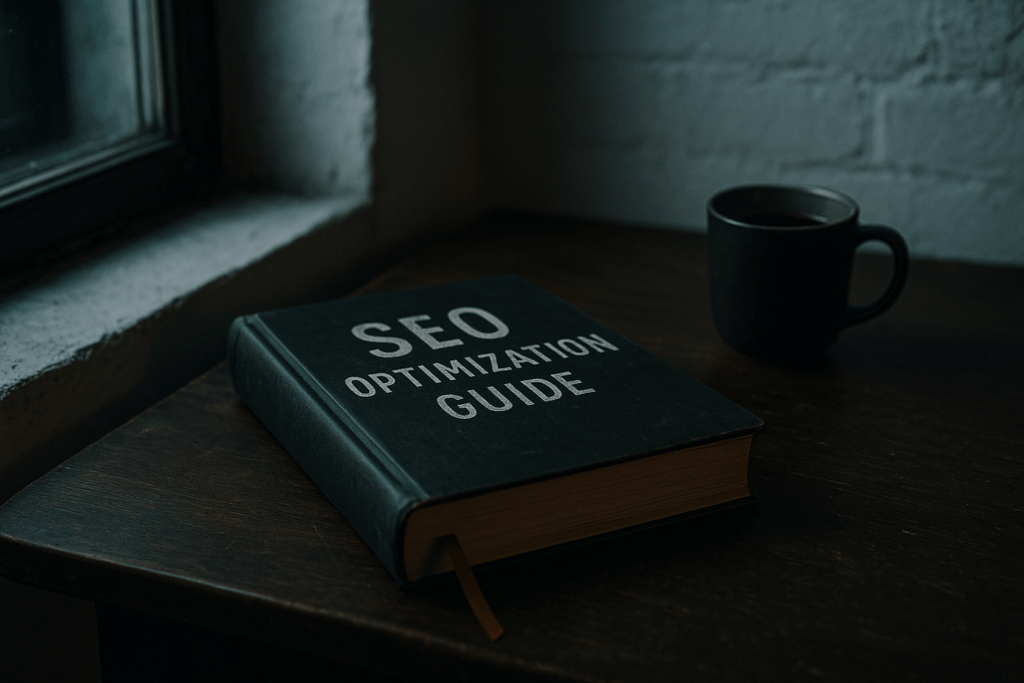Introduction: Why Focus Is a Superpower
In a world constantly competing for your attention, focus has become one of the most critical skills you can develop. Whether you’re trying to crush a work task, study effectively, or simply enjoy a moment of peace, your ability to control your attention determines the quality of your output—and your experience.
The Value of Attention Today
- Attention is no longer just a cognitive skill; it’s a personal and professional asset
- In the digital economy, your focus is constantly being monetized by apps, ads, and algorithms
- Those who control their attention often outpace those who don’t, regardless of talent or intelligence
Common Challenges You’re Up Against
Even the most motivated people struggle with focus for reasons tied to modern life:
- Digital Distractions: Constant notifications, social media scrolling, and app switching fragment attention
- Mental Fatigue: Information overload and lack of breaks can deplete cognitive resources fast
- Multitasking Myths: Trying to juggle too much at once leads to shallow work and reduced mental clarity
What You’ll Learn in This Guide
This article walks you through a set of proven, practical mental techniques designed to:
- Help you clear mental clutter and reduce cognitive noise
- Boost your ability to lock in on one task at a time
- Train your attention like a muscle, with strategies backed by neuroscience
- Apply your sharpened focus to various areas of life, from creative work to gaming sessions
If you’ve ever felt like your mind is scattered or easily pulled in a hundred directions, you’re not alone. The good news? Focus is highly trainable—and it’s a skill you can start mastering today.
Clear the Mental Clutter
Your brain isn’t a filing cabinet—it’s more like a whiteboard. Leave too many things scribbled on it, and eventually, you stop seeing anything clearly. That’s where the brain dump method comes in. It’s simple: sit down, open a notebook or a blank doc, and write literally everything that’s on your mind. Tasks, worries, random reminders—get it out. The more you offload, the more space you give your brain to actually think.
Intentional journaling takes that a step further. It’s not about writing your life story. It’s about checking in with your thoughts. Ask yourself what feels heavy, what’s distracting you, and what actually matters today. Clarity comes from slowing down just enough to hear yourself think. Focus follows shortly after.
And don’t underestimate your environment. Your brain responds to context. If your workspace looks like a garage sale, your attention will scatter. Instead, use simple environmental signals to tell your mind it’s go-time. A cleared desk. A specific playlist. A certain chair. These cues help shift your headspace from scattered to centered—no willpower required.
Practice the Art of Monotasking
Multitasking looks efficient on paper. In reality, it scatters your brain. Jumping from one task to another burns valuable mental energy in context switching—like slamming the brakes and gunning the engine at every stoplight. Over time, it leads to half-finished thoughts, dropped details, and mental fatigue.
The antidote is monotasking. Simple, focused systems like task batching and time blocking are the backbone here. Task batching means grouping similar tasks and knocking them out together. Time blocking means scheduling uninterrupted windows of focus. Think: one hour just for editing, 30 minutes for emails, a focused block for scripting tomorrow’s vlog.
Staying locked in isn’t about resisting every distraction. It’s about making space for focus ahead of time. Mute notifications. Close extra tabs. Tell people you’re offline for a while. Design your environment and your calendar to protect your focus before it gets tested.
Focus isn’t a mood—it’s a structure. Build it, and it’ll show up.
Use Anchors: Rituals That Signal Deep Work
Focus doesn’t flip on like a light switch. It gets built—step by step—through habit and repetition. That’s where pre-focus routines come in. Think of them like a warm-up before a run or a boxer shadowboxing before a fight. Small rituals that signal to your mind: “It’s go time.”
These anchors don’t need to be complicated. A mug of tea brewed just right. One minute of controlled breathing to drop the noise from your head. Ambient instrumental music playing at low volume. These small steps create predictability, and that builds mental traction.
The real power of a ritual isn’t magic—it’s muscle memory. When done with intent, each cue trains your brain to shift gears faster and enter that deeper work zone more reliably. Over time, your mind knows what’s coming next, and that familiarity reduces resistance.
If focus is hard for you, start not with the work, but with the few minutes before it. Nail that, and the rest gets easier.
Train Focus with Mental Reps
Focus Is a Muscle—Build It Like One
Your ability to concentrate isn’t fixed—it’s trainable. Just like physical strength, focus improves when you stress it strategically, then allow recovery. Each time you resist distraction and return to the task, you’re strengthening your “attention muscle.”
- Focus improves through consistent, deliberate practice
- Small wins (even a few uninterrupted minutes) build up over time
Proven Strategies to Build Mental Endurance
Ready to activate your brain’s potential? Here are three highly effective techniques you can incorporate into your daily routine:
1. Pomodoro Technique Break work into focused sprints of 25 minutes, followed by short breaks. This method prevents burnout while stretching your attention span over time.
2. Attention Sprinting Choose one task and go all-in for 10–15 minutes—no distractions, no looking back. This mental sprint trains your brain to resist multitasking and dive deep fast.
3. Digital Fasting Limit exposure to digital input (especially social media) in planned blocks. Removing low-quality stimuli boosts your brain’s ability to focus when it counts.
Resetting Your Attention Span
Even the most disciplined minds need recovery. Science shows that short breaks, especially those involving nature, physical movement, or deep breathing, restore your cognitive capacity.
- Step away from screens regularly to avoid cognitive overload
- Try 5-minute outdoor walks or eye exercises to refresh mental clarity
- Balance intense focus with intentional downtime to avoid burnout
Focus training doesn’t require massive willpower—it requires mindful reps over time. Like any skill, the more you use it with purpose, the stronger it becomes.
Redirect Attention, Don’t Fight It
Distraction is part of the deal. Pretending it doesn’t exist—or getting frustrated when it shows up—is a fast track to burnout. Instead, the key is to observe distraction without judgment. Noticing when your attention has wandered is actually a win. It means you’re present enough to do something about it.
This is where the “label and return” technique comes in. When a thought pulls you off task, label it—”planning,” “worrying,” “boredom,” whatever it is. Then gently guide your attention back. No self-scolding, no over-analysis. Just back to the task. Like muscle memory, this gets easier with repetition.
Staying in flow isn’t about perfection. It’s about noticing the drift quickly and steering back smoothly. Mindful awareness turns re-centering into a habit, not a struggle. Keep your return gentle, like correcting your balance on a moving bike. You don’t need force—just awareness and a little course correction.
Nutrition, Sleep, and Physical Habits
The Physical Foundations of Mental Clarity
Focus isn’t just a mental game—it’s deeply tied to your physical health. Without proper sleep, hydration, and nutrition, even the best concentration strategies won’t stick. Treating your body well is the most sustainable way to support your brain’s performance.
Key Physical Factors That Affect Focus
For optimal cognitive function, pay close attention to these essential habits:
- Hydration: Even mild dehydration can impair memory, attention span, and mood. Aim for regular water intake throughout the day—don’t wait until you’re thirsty.
- Sleep Cycles: Quality sleep is non-negotiable. Deep sleep and REM are both critical for memory consolidation, emotional regulation, and decision-making. Establish consistent sleep-wake times to reinforce your natural rhythm.
- Blood Sugar Balance: Spikes and crashes in blood sugar lead to sluggishness, irritability, and brain fog. Choose meals with healthy fats, fiber, and protein to keep your energy stable.
Breathwork and Posture: Small Shifts, Big Impact
Subtle changes in how you breathe and carry your body can significantly affect your focus:
- Breath Awareness: Slow, deep breathing activates the parasympathetic nervous system, helping to calm the mind and sharpen attention. Try box breathing (in for 4, hold for 4, out for 4, hold for 4) to reset quickly.
- Posture Check: Slouching restricts airflow and drains alertness. Sit or stand upright with an open chest and relaxed shoulders to stay engaged during tasks.
Bottom Line
Solid mental performance starts with physical fundamentals. When your body is aligned with your focus goals, you create the conditions for sustained clarity, energy, and mental resilience.
Apply Focus in Specific Contexts (Like Gaming)
When the pressure’s on and every move counts, gamers don’t just react—they learn to respond with precision. Competitive gaming sharpens focus in real time. Players are constantly processing visual data, sound cues, and timing windows—all while tracking strategies and anticipating opponents. This kind of mental engagement isn’t random. It’s refined through repetition, scenario-building, and extreme familiarity with the virtual environment.
Cognitive load becomes a real factor during longer sessions. The best players know when they’re hitting their limit and have habits to stay in the zone: micro-breaks, nutrition, hydration, and setups free of background noise or mental clutter. Overload kills clarity. So they offload routine decisions—key bind setups, warm-up drills—and reserve mental energy for what matters: awareness and execution under stress.
Strategic aids, like walkthroughs or mini-guides, also help lighten that mental load. By externalizing decision trees or optimizing gameplay choices in advance, gamers can stay focused on playing well—not panicking mid-match. For more on how these tools work, check out Leveraging Strategy Guides for Better Gameplay.
Conclusion: Focus Is Trainable, Not Fixed
Focus isn’t something you’re simply born with—it’s a skill you cultivate. If you struggle with concentration, the good news is that consistent, small actions can have a cumulative, powerful effect over time.
Recap: Simple Techniques, Big Impact
To sharpen and sustain your focus, remember what works:
- Clear distractions first. Get thoughts out of your head onto paper. Minimize digital noise and physical clutter.
- Work with consistent routines. Use rituals and environmental cues to anchor focus and build mental momentum.
- Train deliberately. Techniques like Pomodoro, time-blocking, and digital fasting help scale your ability to concentrate under pressure.
Skill Over Motivation
Relying on bursts of motivation isn’t a sustainable focus strategy. What matters far more is your ability to show up, even when you don’t feel like it.
- Consistency builds mental endurance
- Systems reduce the need for willpower
- Even 10 minutes of intentional focus trains your brain for more
Build a System Your Brain Can Trust
In the end, your brain learns to associate certain cues and patterns with deep work. When you create a predictable, supportive environment for focus, you make it easier to enter—and stay in—that state.
- Trust is built through repetition
- Optimization happens over time, through trial and feedback
- Small wins compound into long-term clarity and performance
Focus doesn’t require perfection. It requires presence, and a process. Build yours—and protect it.




